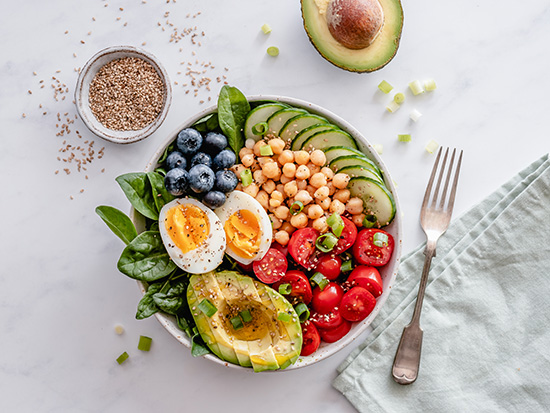News Blast: Your Daily Update
Stay informed with the latest news and trends.
Diet Dilemmas: When Kale Isn't Your Best Friend
Discover surprising truths about healthy eating! Find out why kale might not be your best friend in your diet journey.
Is Kale Overrated? Exploring Alternative Superfoods for Your Diet
Kale has long been celebrated as a superfood, touted for its impressive nutrient profile and health benefits. Is kale overrated? While it certainly packs a punch with vitamins A, C, and K, as well as essential minerals like calcium and iron, it's worth considering whether there are other alternatives that might offer similar or even greater benefits. In recent years, various other greens and plant-based foods have gained popularity, each with unique properties that can enrich your diet.
Let’s explore some alternative superfoods to kale:
- Spinach: Loaded with iron and antioxidants, spinach is versatile and easy to incorporate into meals.
- Swiss Chard: This leafy green is not only colorful but also rich in vitamins and minerals, including magnesium.
- Broccoli: A cruciferous vegetable that provides ample vitamin C and fiber, making it a great addition for overall health.
- Quinoa: Although not a green, quinoa is a complete protein and offers a range of nutrients, making it an excellent grain alternative.

The Truth About Kale: Nutritional Benefits and Potential Downsides
Kale, often hailed as a superfood, is rich in essential nutrients that can provide numerous health benefits. This leafy green is an excellent source of vitamins A, C, and K, as well as minerals like calcium and potassium. With just one cup of cooked kale, you can receive over 1000% of your daily requirement for vitamin K, which is crucial for bone health and proper blood clotting. Additionally, kale is packed with antioxidants, such as quercetin and kaempferol, which help combat oxidative stress and reduce inflammation in the body. Incorporating kale into your diet can contribute to better heart health, improved digestion, and a lower risk of chronic diseases.
However, it's essential to be aware of the potential downsides of consuming too much kale. One concern is its high content of oxalates, which can interfere with calcium absorption and may lead to kidney stones in susceptible individuals. Furthermore, kale belongs to the cruciferous vegetable family, which contains goitrogens—substances that can disrupt thyroid function when consumed in large amounts. While these issues are generally not a concern for most people, moderation is key. Consuming a variety of vegetables alongside kale can provide balanced nutrition while minimizing any potential risks associated with its intake.
Why Your Green Smoothie Might Need More Than Just Kale
While kale is often hailed as a superfood, relying solely on it for your green smoothie may not provide all the nutrients your body needs. Green smoothies are an excellent way to incorporate a variety of fruits and vegetables into your diet, but it’s essential to diversify the ingredients. Adding other greens such as spinach, Swiss chard, or arugula can enhance the nutrient profile significantly. These leafy greens offer different vitamins and minerals that kale alone might lack, such as vitamin K and magnesium.
In addition to mixing up your greens, consider adding other components to your smoothie for a boost in flavor and health benefits. Incorporating ingredients like avocado, which provides healthy fats, or banana, which adds natural sweetness and potassium, can transform your green smoothie from a basic drink into a powerhouse of nutrition. Don't forget to include a source of protein, such as Greek yogurt or a protein powder, to keep you feeling full and energized throughout the morning!